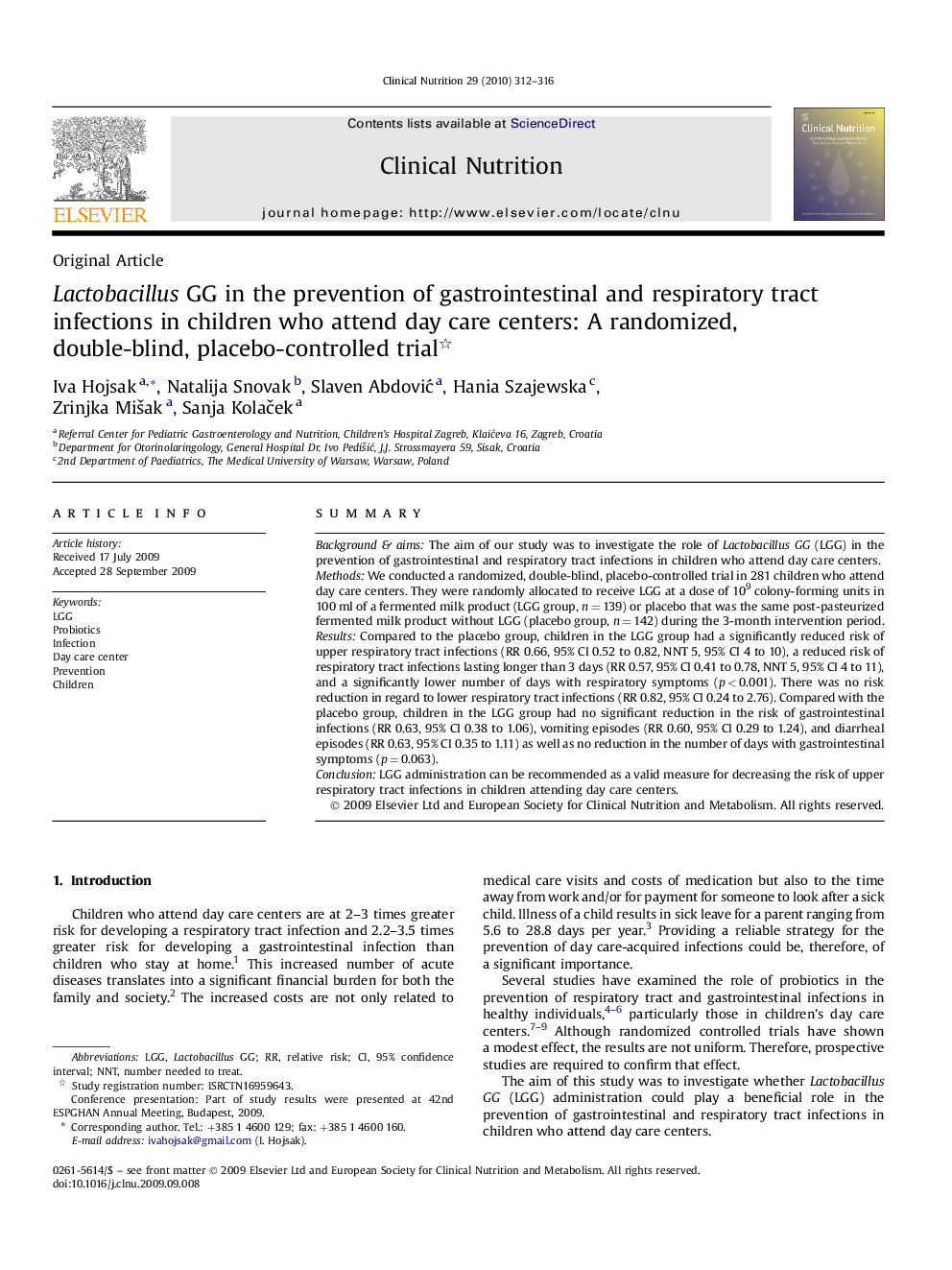| Article ID | Journal | Published Year | Pages | File Type |
|---|---|---|---|---|
| 2683239 | Clinical Nutrition | 2010 | 5 Pages |
SummaryBackground & aimsThe aim of our study was to investigate the role of Lactobacillus GG (LGG) in the prevention of gastrointestinal and respiratory tract infections in children who attend day care centers.MethodsWe conducted a randomized, double-blind, placebo-controlled trial in 281 children who attend day care centers. They were randomly allocated to receive LGG at a dose of 109 colony-forming units in 100 ml of a fermented milk product (LGG group, n = 139) or placebo that was the same post-pasteurized fermented milk product without LGG (placebo group, n = 142) during the 3-month intervention period.ResultsCompared to the placebo group, children in the LGG group had a significantly reduced risk of upper respiratory tract infections (RR 0.66, 95% CI 0.52 to 0.82, NNT 5, 95% CI 4 to 10), a reduced risk of respiratory tract infections lasting longer than 3 days (RR 0.57, 95% CI 0.41 to 0.78, NNT 5, 95% CI 4 to 11), and a significantly lower number of days with respiratory symptoms (p < 0.001). There was no risk reduction in regard to lower respiratory tract infections (RR 0.82, 95% CI 0.24 to 2.76). Compared with the placebo group, children in the LGG group had no significant reduction in the risk of gastrointestinal infections (RR 0.63, 95% CI 0.38 to 1.06), vomiting episodes (RR 0.60, 95% CI 0.29 to 1.24), and diarrheal episodes (RR 0.63, 95% CI 0.35 to 1.11) as well as no reduction in the number of days with gastrointestinal symptoms (p = 0.063).ConclusionLGG administration can be recommended as a valid measure for decreasing the risk of upper respiratory tract infections in children attending day care centers.
